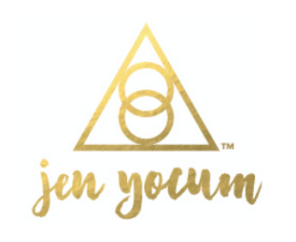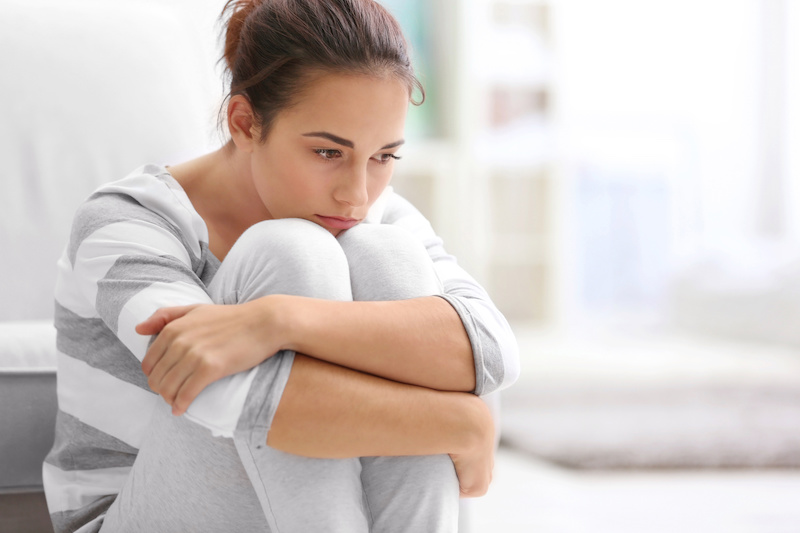May is National Mental Health Awareness Month, and according to the National Institute of Mental Health (NIMH), almost 20% of Americans live with a mental illness (National Institute of Mental Health, 2022). In my office, I see patients with anxiety and depression on a daily basis. In fact, it is rare nowadays to meet a patient who does not have a diagnosis of one or both of these conditions. Our fast-paced, high-stress, social-media-obsessed culture that rewards overworking and oversharing, and stokes all of our fears plays a major role in driving mental illness. When we pair that with expectations our family or culture may have of us and what it means to be “successful” or to “fit in,” it is a recipe for disaster. Add in trauma, rejection, isolation, and abuse of any type, and it’s a wonder that only 1 in 5 Americans have mental illness.
Before we discuss anything further, I want to share the following disclaimer: I acknowledge many people are born with or have a genetic predisposition to severe mental illness, or may suffer from physical addictions; this article is focusing specifically on ways to help anxiety or mild to moderate depression.
Over the last two years, we’ve been forced into a social isolation experiment due to the pandemic. Unfortunately, the one thing everyone can agree on is that it has had negative effects on our mental health, including that of our children. Without the ability to see friends as often, to travel, or to even attend life events such as weddings, funerals, and graduations with ease, it left most of us feeling sad, but it left those who live alone in true isolation. Social isolation may be fun at first for us introverts, but we humans are not made to live alone. We require connection with other human beings, and how satisfied we are with our level of connection determines whether or not we feel lonely. When we feel lonely, it leads to depression, as well as a host of other medical conditions, including cognitive decline, diseases of inflammation, and a compromised immune system (Novotney, 2019). In fact, the World Health Organization (WHO) recently released a brief stating that there was a 25% global increase in anxiety and depression in the first year of the pandemic alone. Cited reasons were due to the stressors of losing work, lack of support, loneliness, fear of illness, grief following death of loved ones, and financial stress, just to name a few (World Health Organization, 2022).
If you have a diagnosis of anxiety or depression, or find yourself feeling “low,” the following are tips for how to help:
- First and foremost, seek help from professional mental health therapist. Having someone to talk to who is there to listen and help you sort through your feelings and emotions is crucial to healing. You may also need a psychotherapist who can prescribe and monitor medications that may help elevate your mood. It may sound strange that an acupuncturist would recommend medication, but for some people, it is truly life changing. While many patients do come to me to try to ease off of their medications, and can do so successfully, medications can be an incredible help, whether in the short or long term. To find a qualified therapist, check your health insurance practitioner database to find someone who is in-network, or consult the Psychology Today website to find practitioners who may be out-of-network but still an excellent fit for you. There are also many other resources, such as your employer’s Employee Assistance Plan (EAP), or websites/apps like betterhelp or Talkspace.
- Try alternate medicine therapies, such as acupuncture, herbal medicine, or massage. Therapies like these allow you to naturally shift your mental and energetic state, with little side effects, not to mention helping those shoulders come down from your ears!
- Acupuncture. Research shows that acupuncture activates the parasympathetic nervous system, and deactivates the sympathetic nervous system, which allows you to relax and feel less pain (Qian-Qian et al., 2013). In Chinese Medicine thought, the needles release blockages to the flow of energy that occur when you are stressed, anxious, or depressed. Once the energy is flowing better, your mood is more likely to stabilize and improve.
- Herbal Medicine. Herbal medicine provides a natural alternative to lab-made medicines. Consult with your physician and a local herbalist to determine if herbs such as St. John’s Wort, kava, or ashwaganda may help you.
- Massage. Massage therapists use a variety of techniques to stretch the muscles and fascia to help you feel more relaxed. Some therapists also use trigger point therapy or acupressure to not only stimulate the muscles to relax but to activate the energetic benefits of acupuncture meridians at the same time.
- Consult with your doctor to determine if you should add vitamins or minerals supplements to your diet. Vitamin D, B complex, omega-3 fatty acids (like fish oil), L-theanine, or magnesium are all supplements that have been suggested by research to help people with anxiety (Medical News Today, 2019). Fish oil, Vitamin D, methylfolate, N-acetylcysteine, and S-adenosylmethionine (SAMe) have been shown to help depression (Harvard Health Publishing, 2019). Talk to your doctor to see which supplements may work the best for your particular condition.
- Spend time in nature. I feel like I say this in almost every article where I’m giving advice, but nature is so incredibly healing that I cannot stress its importance enough. So whether it’s sitting on your deck or porch and watching the birds, or it’s going on a hike or kayaking on the lake, get outside.
- Meditate or do deep breathing. Meditation lowers your stress hormones, and helps you stay in the present moment. There is a saying that depression occurs when people live in the past, and anxiety occurs when people live in the future. By staying in the present moment, we are able to leave our stressors behind, if just for a couple minutes. Deep breathing also activates the parasympathetic nervous system, causing the relaxation response I mentioned earlier. The more you practice just closing your eyes and taking some deep breaths, the better you’ll eventually be able to let the thoughts come and go with ease.
- Spend time with loved ones. Since social isolation contributes to depression, it is important that we stay connected to people we care about. It is ideal to occasionally see them in person as well, and physical contact such as hugs helps us to feel connected and boost mood. If you do not have loved ones nearby, it may be time to make some local friends. Join a local sports team, local Facebook groups for social events, or ask a neighbor if they’d like to hang out. I understand that fear of rejection and/or comfort in the status quo are a real thing and can be challenging to overcome, and the possibility of gaining a lifelong friend can make the temporary discomfort well worth it.
If you are suffering from anxiety and/or depression, I hope the natural tips above, combined with personalized advice and treatment plans from your healthcare professionals, will stabilize your mood and help you feel better.
Important Note: If you ever feel suicidal or like life is not worth living, please contact the National Suicide Prevention Lifeline at 1-800-273-8255 or via chat on https://suicidepreventionlifeline.org (both available 24/7).
References
Harvard Health Publishing: Harvard Medical School (2019, December). Can a dietary supplement help ease your depression? https://www.health.harvard.edu/depression/can-a-dietary-supplement-help-ease-your-depression
Medical News Today (2019, July). Top 10 evidence based supplements for anxiety. https://www.medicalnewstoday.com/articles/325823
National Institute of Mental Health (2022, January). Mental Illness. https://www.nimh.nih.gov/health/statistics/mental-illness
Novotney, A. (2019). The risks of social isolation. Monitor on Psychology, 50 (5), 32.
Qian-Qian, L., Guang-Xia, S., Qian, X., Jing, W., Cun-Zhi, L., and Lin-Peng, W. (2013) Acupuncture effect and central autonomic regulation. Evidence-based Complementary and Alternative Medicine: eCAM. https://www.ncbi.nlm.nih.gov/pmc/articles/PMC3677642/
World Health Organization (2022, March). COVID-19 pandemic triggers 25% increase in prevalence of anxiety and depression worldwide. https://www.who.int/news/item/02-03-2022-covid-19-pandemic-triggers-25-increase-in-prevalence-of-anxiety-and-depression-worldwide
Note: This article was originally published in a local magazine for their May 2022 issue. For citation references, please contact Dr. Yocum at https://jenyocum.com/contact/


Recent Comments